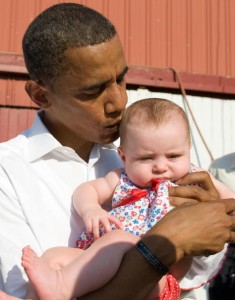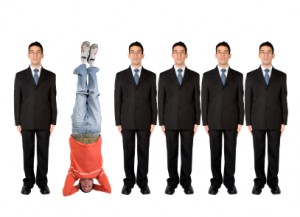 In my recent book, The Coming Aristocracy, I wrote that the United States now lives in the era of the permanent campaign.
In my recent book, The Coming Aristocracy, I wrote that the United States now lives in the era of the permanent campaign.
A young pollster in the Carter administration, Patrick Caddell, coined the term back in 1976, and he hit the nail right on the head. America used to gear up for campaigns, elect one of the candidates, and then settle down to let the winner lead the nation.
Not anymore.
Now we elect a candidate and then immediately increase the fervor of the debate. We pick sides before an election, and once the election is over we get really serious about the fight.
In the modern era of politics since Watergate, this permanent battle trend has continually increased. It is a new kind of politics, where few things are about leadership or wisdom and everything is about beating the other side.
In the last presidential campaign, I expected Senator Clinton to win the election — and I was surprised when Barack Obama took his party’s nomination. I quickly set out to learn everything I could about him, from original sources — his writings, speeches and public utterances.
What I found was interesting: Obama’s pre-presidential record and especially his book, The Audacity of Hope, was a blend of dynamic-populist leadership with an old-line liberal politics. The Democratic Party hadn’t seen that mixture since JFK.
My prediction was that Obama’s populism would him bring him a victory and then we’d see whether he emphasized leadership or liberalism. If he emphasized the leadership aspect, I said, he would become one of the great presidents of American history.
It was Leader Obama versus Politician Obama, and I was very interested to see which one would win out in the realities of modern Washington.
Three Americas
So far Politician Obama has dominated. This leaves the United States in an interesting place. In fact, it changes everything.
If you watched the historic night of the 2008 election and listened to the now-famous “Yes We Can” speech, you may not realize that this was the height of the Leader Obama.
Politician Obama has changed everything since that night.
For example, Leader Obama did something truly amazing in the modern political era — he carried a majority of the wealthy voters (those who make over $200,000 per year). He was the first Democrat to do so in the post-Watergate era, and this amazing statistic seemed to indicate a new type of politics ahead.
But his hard shift to the left after inauguration has changed this dynamic.
Note that the change isn’t among conservatives — they never liked him and few voted for him. The shift is in the 39% of the voting population that now don’t want to be called either liberals or conservatives.
This tri-lateral divide of the American political landscape is fascinating. There are roughly 28% of us who would donate to the Sierra Club, a competing 28% who would donate to The National Rifle Association, and a whopping 39% made up of two kinds of people: those who would donate to neither, and those who would donate to both!
We have the liberals in one camp, the conservatives in another, and in the largest faction we find a mixed group called independents. The far left and extreme right form their own small camps at the fringes.
“Mr. Head Democrat”
When President Obama took office he had a 70% approval rating — liberals, most of the far left, and nearly all of the independents. By September 1, 2009 his approval rating was down to 50%.
This is the biggest fall in the history of new presidents in so short a time, as David Brooks recently wrote in The New York Times. Brooks also noted that national anxiety is higher now than before Obama took office, and 59% of Americans now think the country is headed in the wrong direction.
Three events have underscored just how wide the divide in our nation has become. First was the outcry against President Obama’s address to school children — clearly many saw him as a politician rather than their president.
Second was the surprising money-raising power generated by Congressmen Wilson shouting “you lie” during the President’s speech (which the Senate rewarded by promptly adopting what Wilson was promoting with the outburst).
Third was the interesting way that President Obama managed to use his speech on health care to effectively accomplish two things: appear totally in charge and at the same time give up on many of the main points the Obama Administration had earlier supported (e.g. deficit spending on health care, no capped tax exemptions on health care, and raising taxes on the rich to pay for health care, etc.).
The strategy seems to be to get any bill called “Health Care” to pass.
These three concurrent events all point to one thing: President Obama is seen less as President of the United States and more as the Head Democrat. Politician over leader.
Ironically, this was the same story in the Bush Administration. Conservatives saw him as the President and liberals as the Head Republican. Today the roles are reversed.
But the telling point is how independents see the president. When they see a president as leader, popularity and support soars; the opposite occurs when independents see a president as politician.
Independent Power
The power resides in the independents, though neither major party has yet to admit it. Independents want three main things:
- Wise use of money by government.
- Strong national defense.
- Decentralization of power along with maintenance of state, local and individual powers.
 Independents are more pragmatic than ideological, they don’t engage in emotional party-supporting, and they just want things to work.
Independents are more pragmatic than ideological, they don’t engage in emotional party-supporting, and they just want things to work.
Independents want to be safe from international and terrorist attacks, free, and prosperous. They want a strong government that does certain things very well and leaves the rest to the state, local or private sectors.
When the Bush Administration started its tenure with these goals, it won the conservative and independent votes and support, but lost independents when it turned to big government answers and huge spending increases (much higher than Clinton Administration budgets) in its final term.
When Leader Obama promised to cut foreign spending and bring a new era of real leadership to Washington, independents supported his candidacy against the daunting possibility of continued Bush-like policies under McCain.
Where liberals voted for Obama in the 2008 election, many independents voted more against Bush/McCain.
Later, as President Obama shelved his Leadership hat and flexed his Liberal-Partisanship muscles, independents were disappointed and reluctantly began to wane in their support for the Obama Administration. This trend is just getting started.
Independents are also withdrawing their support from the Democratic Congress — as they watch it too turn to party politics and shun leadership.
Of course, liberals still consider the President a great leader, as many conservatives did even when President Bush tried to spend and regulate his way to popularity.
But independents aren’t tied to any one party. They want results, and they’ll support candidates, Presidents and other officials who get the results they seek.
In this environment, leadership means getting support for your projects from your own party plus independents. Anything else fails.
Three issues drive presidential politics in the U.S.: national security, the economy, and a sense of leadership. Win two, and you win the presidency. Win three, like the Republicans did with Reagan and the Democrats did with Obama, and you win the Congress too.
In the fall of 2009, President Obama is winning only one — the leadership thing — and this because he is a superb speaker, and so far independents see no true alternative to his leadership.
He must pass a health care bill, no matter what it actually does or says, just to maintain this leadership edge. Lose that, and the nation will return to a Carter-like period of no-trust and malaise.
A Tipping Point Trend
Of course, liberals naturally think President Obama is winning all three and conservatives say he is losing them all. That’s normal.
The fact that he has also lost the majority support of independents is the issue. He won on the leadership thing, but has turned increasingly politician ever since.
This rise of the independents is creating an interesting tension between the two-party system and the voting electorate.
If the Obama Administration backs away from hard-line liberalism, the expansion of government, and attempting to solve everything through increased regulation, and instead emphasizes leadership and pragmatic policies that really work, independents will swing Democrat in the polls and future elections. If not, they won’t.
Either way, the power of the independents will increase the divide between the left and the right. Indeed, divisiveness is a hallmark of an era of shifting like the one we are experiencing.
The first two such shifts in American history created a new political party — the Democratic Republicans in 1798 and later the Republicans in 1856.
The last time we faced such a major shift we totally restructured government power by creating the Social Security Administration, the United Nations, the World Bank, the International Monetary Fund, a host of secretive agencies in Washington, and a drastic increase in government regulations and red tape.
Whatever the current shift brings, let’s hope for more of a Freedom Shift than a transfer of more power to Washington.
Some may say that a rebirth of freedom is too hard, that we can’t do it. Our response should be, “Yes we can.”
In truth, it is a matter of leadership over politics.
If independents keep being stifled in both of the major parties, their frustration will continue to grow.
When they side with the Democrats, the result is usually more spending on national programs that further undermine America’s fiscal strength, free-market system, and national defense.
When they side with Republicans, the result has been increased spending on international projects and even corrupt governance that weakens the economy, freedom, and American power.
In short, at some point independents are likely to either totally reform one of the parties or just start their own.
Investing in the Future
On a personal level, many independents are investing in gold (which always seems to increase in value when the government spends beyond its means) and McDonald’s (which grows when the economy is booming and keeps growing internationally even when the U.S. economy recedes).
On a national level, during a time of shifting it is natural to see people a little confused about where they stand. After all, the constants they have believed probably don’t apply anymore.
For example, Republicans are no longer the party of the rich and Democrats have quit being the party of the little guy. Also, voters can no longer count on the old certainties that Republicans want to reduce the size of government and Democrats want to decrease foreign involvements and focus on domestic policy.
Indeed, now both Republicans and Democrats drastically increase government spending and foreign entanglements — whoever is in office.
Learning From Both Sides
 I once invited a regional politician, a well-known liberal and vocal Democrat, to speak at a graduation ceremony for George Wythe University. His speech was liberal and, well, liberal.
I once invited a regional politician, a well-known liberal and vocal Democrat, to speak at a graduation ceremony for George Wythe University. His speech was liberal and, well, liberal.
Afterwards conservatives railed and argued for days about my selection of speaker. The students, in contrast, learned a great deal and the speech provided material for many long discussions and assignments.
A few liberals congratulated me on our selection of speaker, but conservatives called with their frustration. A few donors even stopped sending contributions.
A few years later we invited a conservative talk-show host to speak, and the entire process repeated itself — this time the conservatives were happy, the liberals were upset, and once again the students and anyone willing to relax and listen learned a great deal.
The most intriguing lessons from both of these events came from the few who made a point of really listening and learning from views not naturally their own. We often learn more in our disagreements than from those who just repeat what we already believe.
Nearly all who closely listened and learned from the speaker of a differing viewpoint exhibited the basic views of independents. This is a rising power in America, as of yet mostly unnoticed, but sure to shift everything in the years ahead.
Winning Elections Through Leadership
I doubt that any U.S. President, liberal or conservative, will be seen by the nation any time soon as truly “Mr. President” rather than “Mr. Head Democrat or Republican.”
When it does happen, it will be because Mr. or Madam President drops partisan politics and adopts the values of independents: strong national defense, a free economic system that spurs prosperity, and a strong and active government that does what it should and also leaves the rest to state, local and private entities.
I look forward to being led by a President, current or future, whose policies win the long-term support of Party + Independents. That’s leadership. Anything else is merely partisan politics.
Frankly, the next election feels a long ways away, and I hope President Obama will shed his partisan hat and take on the mantle of leadership that comes through so clearly in his book The Audacity of Hope. (I had the same hope with President Bush and his promise of compassionate conservatism, but it never materialized).
If not, other elections will come and the biggest block of voting Americans will go searching for a leader who will finally represent their goals. Whatever happens in elections, this growing group is poised to remake the future of American politics.
*******************
Click Here to Download a PDF Version of This Article
To learn more about the rise of independents, see The Coming Aristocracy by Oliver DeMille.
Sources:
See the writings and speeches of Barack Obama, and the writings of David Brooks, George Will, Hillary Clinton, Thomas Friedman, and Ken Kurson.






Very cool article. I like the non biased approach to both parties and the teaching of the principle that it is wisest to learn from both.
Independents seem quite libertarian by your description. Although there are differences, I could see a Libertarian leader having a legit chance at the white house if she were the right leader.
Interesting that Fareed Zakaria’s opinion piece today in the Washington Post says the same thing, asking Pres. Obama to stop acting like a Prime Minister and start being the President of the United States. Let’s hope he listens.
http://www.washingtonpost.com/wp-dyn/content/article/2010/01/24/AR2010012402300.html?wpisrc=nl_opinions
Nice to know that the CSL is 3 months ahead.